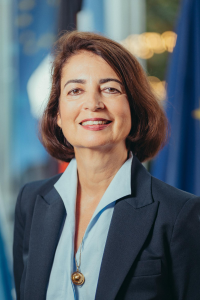Titre unique
In 2009, shortly after Klaus was appointed as Secretary-General, a member of his close entourage confided in me that the new boss was spending a lot of time reading ‘books about U.S. politics’. There are Secretaries-General and Directors-General and other high administrative office holders who do a perfectly good job of managing their administrations, putting out fires when necessary, but otherwise maintaining institutional rhythm and business as usual. Not Klaus.
There has always had to be a higher ethic and a higher logic, and the dynamics that flow from those. The higher ethic was and is, fundamentally, the European integration process. But for Klaus, that cannot be an undirected evolutionary affair at the whim of events. It is a moral good and, as such, must be cherished and maintained on course, primarily by the European institutions, for, following in best Jean Monnet tradition, Klaus has always been aware that nothing will last without them.
Moreover, the Union that is evolving must be a democratic construct. That means it must necessarily involve a strong, democratically legitimate Parliament wielding the full panoply of its powers. Hence all those books about U.S. politics, and particularly about the U.S. Congress – that higher logic (if one is seeking inspiration, where else is a powerful legislature not controlled by government to be found?).
That is not to say that Klaus is not a very good administrator – on the contrary, as this essay and many of the other contributions in this collection will attest. But Klaus has always had a keen sense of involvement in an ulterior process that goes beyond the institution itself but of which the institution is a vital element.
Next in Klaus’s quinumvirate come the political actors within the parliamentary system; the once nascent and now growing European political parties (and the political groups), and the European People’s Party and the EPP Group in particular (that is, without mentioning his compendious and entirely up to date knowledge of everything that might be going on politically in each of the twenty-seven Member States!). And then there is the administration – or the administrations. For Klaus, an administration can never be a static construct. It is a fluid device in constant interaction with the other levels. It is a part of the whole.
These were, I would argue, his main reference points, and they informed everything he did as Secretary General.




